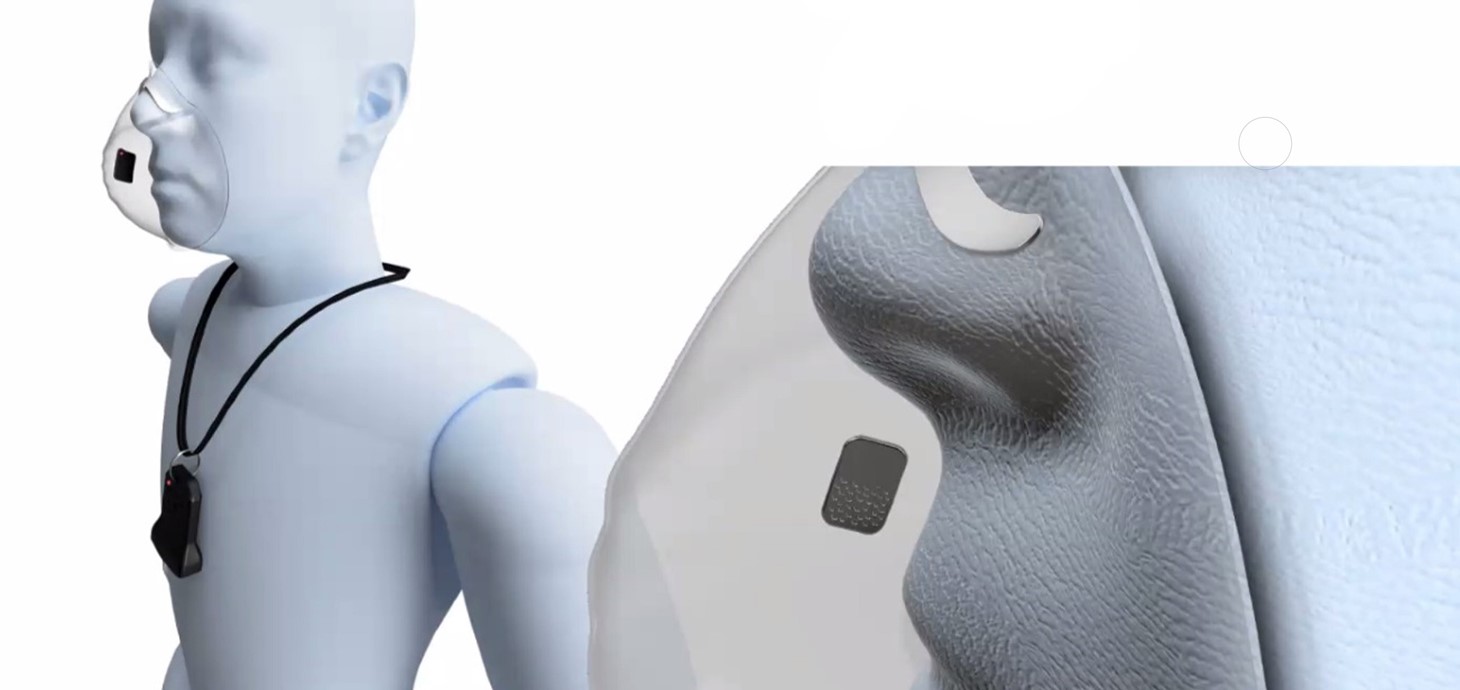These articles are now archived and will no longer be updated.

Swansea University’s Healthcare Technology Centre has played a key role in developing an award-winning communication aid for frontline health staff forced to wear face masks during the pandemic.
The Centre was part of the Welsh-based team behind MaskComms, a microphone designed to be small enough to fit inside a face mask and transmit voice through wireless to a wearable loudspeaker.
The project has just won an £8,000 grant at this year’s prestigious Welsh Health Hack which aims to stimulate innovation and encourage collaboration between NHS Wales, industry and academia.
MaskComms is a response to one of many challenges faced due to the Covid-19 outbreak, after the NHS identified that the wider use of facial masks within the hospital environment has reduced the ability to communicate effectively.
The project, led by Dr Simon Burnell, consultant anaesthetist at Betsi Cadwaladr University Health Board, is a collaboration with design engineer Wyn Griffith, of Wyn Griffith Designs, product designer Thomas Turner, of Ember Technology Design, and Dr Arif Reza Anwary, innovation technologist at Swansea University Medical School’s Healthcare Technology Centre (HTC).
MaskComms, which will now go into production in North Wales, offers an adaptable platform so a group of healthcare professionals wearing masks can communicate easily in the hospital environment, such as in an operating theatre during a surgical procedure.
Dr Burnell said:
“Communication is essential during procedures where the anaesthetic and surgical teams work closely but health and safety is also paramount, so their FFP3 masks cannot be removed to talk to each other.
“The downside to wearing facial masks is that our voices become muffled and indistinct, and we cannot read facial cues. I proposed a solution which allows a device to be placed in any mask, which can transmit to every colleague, or to one communal speaker without compromising the PPE."
This project won first place at the event hosted by M-SPARC and supported by Life Science Hub Wales, MediWales, Bevan Commission, Bangor University, Awyr Las, Santander and Betsi Cadwaldr University Health Board. This year’s event, held online for the first time, saw health and care workers pitch Covid-19 related problems to an audience of techies, product designers, businesses, makers, industry experts, academics, and NHS colleagues.
The HTC is part of the collaborative Accelerate programme. Accelerate is co-funded with £24 million by the European Regional Development Fund (ERDF), through the Welsh Government. The programme is driving cutting-edge research and translating innovative ideas into new products and services to improve the health and wellbeing of those living in Wales.
